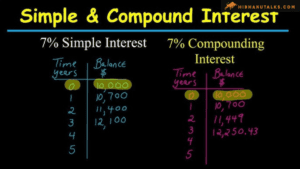
Epsilon Advanced Materials to Invest ₹9,000 Crore in Setting Up Anode Plant in Karnataka
Contents
- 1 Epsilon Advanced Materials
- 1.1 Epsilon Advanced Materials to Invest ₹9,000 Crore in Setting Up Anode Plant in Karnataka
- 1.1.1 Epsilon’s Major ₹9,000 Crore Investment in Karnataka
- 1.1.2 Timeline and Project Phases: A Breakdown
- 1.1.3 Meeting the Growing Demand for Electric Vehicle Batteries in India
- 1.1.4 Scaling Up: Epsilon’s Global Ambitions
- 1.1.5 Conclusion:
- 1.1.6 FAQs:
- 1.1.6.1 1.What is the total investment planned by Epsilon Advanced Materials for the anode plant in Karnataka?
- 1.1.6.2 2.When is the first phase of the anode plant expected to be completed?
- 1.1.6.3 3.What will the production capacity of the anode plant be by 2031?
- 1.1.6.4 4.How will the project be funded?
- 1.1.6.5 5.Why is this investment important for India’s electric vehicle market?
- 1.1.6.6 6.What role does Epsilon play in the global battery materials market?
- 1.1.6.7 7.What other projects is Epsilon currently working on?
- 1.1.6.8 8.Who is Epsilon Advanced Materials’ parent company?
- 1.1.6.9 9.How many employees does Epsilon have?
- 1.1.6.10 10.Why are customers likely to remain loyal to Epsilon for years to come?
- 1.2 Epsilon Advanced Materials
- 1.3 JSW Energy Commissions Its First 300 MW Wind Power Project, Aiming for 20 GW by 2030
- 1.1 Epsilon Advanced Materials to Invest ₹9,000 Crore in Setting Up Anode Plant in Karnataka
Epsilon Advanced Materials
Epsilon Advanced Materials to Invest ₹9,000 Crore in Setting Up Anode Plant in Karnataka
Epsilon Advanced Materials is making a bold move in the electric vehicle (EV) battery space with a major investment in Karnataka. The company is planning to set up an anode manufacturing plant with a whopping ₹9,000 crore investment over two phases. With increasing demand for EVs and battery cells in India, Epsilon’s new venture aims to establish itself as a critical player in the supply chain for both local and global markets.


Epsilon’s Major ₹9,000 Crore Investment in Karnataka
Epsilon Advanced Materials is set to revolutionize the battery industry in India with the construction of a massive ₹9,000 crore anode plant in Karnataka. According to Vikram Handa, Managing Director of Epsilon Group, this investment will be carried out in two phases. The first phase will see an investment of ₹4,000 crore, while the remaining ₹5,000 crore will be invested in the second phase.
The plant will have an initial production capacity of 30,000 tonnes by Q4 2026. As demand for electric vehicles grows, the facility is expected to scale up to a capacity of 90,000 tonnes by 2031. The total investment will serve the company’s long-term vision of supplying essential materials for EV batteries.
Timeline and Project Phases: A Breakdown
The groundbreaking ceremony for the first phase is expected to take place within the next six to eight months, according to Handa. Following this, construction is anticipated to take about a year and a half. Epsilon plans to partly fund the first phase through a combination of customer advances, debt, and project financing.
With the increasing global and local demand for electric vehicles, the timing of this investment aligns perfectly with India’s push for more sustainable transportation solutions. Handa emphasized that, once Epsilon acquires customers, they are likely to remain loyal for the next seven to eight years due to the high cost of replacing battery materials, making this a smart and sustainable business decision.
Meeting the Growing Demand for Electric Vehicle Batteries in India
As India moves towards becoming a global hub for electric vehicle manufacturing, there is an urgent need for local battery production capabilities. Epsilon Advanced Materials will play a critical role by providing a reliable and sustainable supply of anode and cathode materials to cell manufacturing companies.
Handa also stressed Epsilon’s commitment to positioning itself as a key player in the global raw material processing ecosystem. The company’s products will not only meet domestic demand but will also serve international markets, adding a significant boost to India’s global standing in the electric vehicle and battery industries.


Scaling Up: Epsilon’s Global Ambitions
In addition to its plans in Karnataka, Epsilon Advanced Materials is also making headlines with its ongoing project in Odisha. The company has committed an additional ₹10,000 crore investment in phases for this new venture, with the first phase already under construction.
Epsilon’s parent company, Epsilon Carbon, specializes in the production of specialty carbon and carbon black, which is primarily used in the tyre industry. With over 1,100 employees, the company is leveraging its expertise to expand its footprint in the battery materials sector.


Conclusion:
Epsilon Advanced Materials’ ambitious ₹9,000 crore investment in Karnataka signals a strong commitment to both India’s electric vehicle market and the global push for cleaner energy solutions. By setting up a world-class anode plant, the company is positioning itself as a key player in the battery materials supply chain, meeting the growing demands of local and international markets. As India continues to innovate in the EV space, companies like Epsilon are crucial in driving this transformation towards sustainable mobility.
FAQs:
1.What is the total investment planned by Epsilon Advanced Materials for the anode plant in Karnataka?
A. Epsilon is investing ₹9,000 crore in total, with the investment split into two phases.
2.When is the first phase of the anode plant expected to be completed?
A. The first phase, with a capacity of 30,000 tonnes, is expected to be completed by Q4 2026.
3.What will the production capacity of the anode plant be by 2031?
A. The plant will have a production capacity of 90,000 tonnes by 2031.
4.How will the project be funded?
A. Epsilon plans to fund the first phase of the project through a combination of customer advances, debt, and project financing.
5.Why is this investment important for India’s electric vehicle market?
A. The investment will provide a sustainable and reliable supply of anode and cathode materials to cell manufacturing companies, supporting India’s growing EV market.
6.What role does Epsilon play in the global battery materials market?
A. Epsilon aims to be a key player in the global raw material processing ecosystem, serving both local and international demand for battery materials.
7.What other projects is Epsilon currently working on?
A. Epsilon is also building a new project in Odisha with an investment of ₹10,000 crore.
8.Who is Epsilon Advanced Materials’ parent company?
A. Epsilon Carbon, which is involved in producing specialty carbon and carbon black, is the parent company of Epsilon Advanced Materials.
9.How many employees does Epsilon have?
A. Epsilon currently employs over 1,100 people, both on-roll and off-roll, at its Karnataka plant.
10.Why are customers likely to remain loyal to Epsilon for years to come?
A. Due to the high cost of replacing battery materials, once customers are acquired, they are expected to remain with Epsilon for seven to eight years.
Epsilon Advanced Materials
JSW Energy Commissions Its First 300 MW Wind Power Project, Aiming for 20 GW by 2030





















1 comment